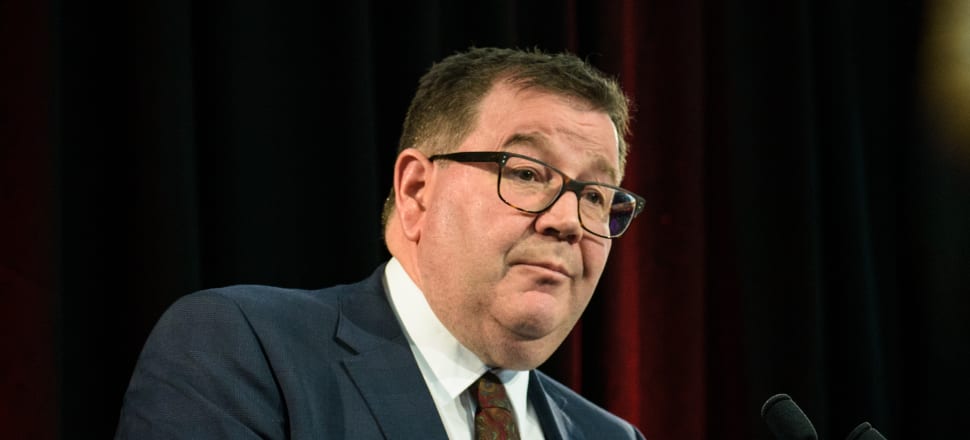
The Government has unveiled a Budget bereft of the usual election-year treats, with New Zealand now forecast to avoid a recession but bad economic conditions still lingering
An expansion of free early childhood education (ECE) and the scrapping of prescription co-payments are the most notable cost of living measures in a Budget described by Finance Minister Grant Robertson as a “pragmatic” approach to a high-inflation environment.
Robertson’s sixth Budget, and Prime Minister Chris Hipkins’ first, comes with mixed news on the fiscal front, with New Zealand no longer predicted to enter a recession in 2023 – but slow growth set to endure, and unemployment to remain high for longer.
Unveiling his government’s plan for the coming year, the finance minister said his focus was on “straightforward and practical investments to deal with the here and now”.
The Budget process had been well underway by the time of the Auckland floods and Cyclone Gabrielle, and the damage caused by those events had forced a reevaluation of priorities.
In addition, the Government needed to avoid worsening high levels of inflation through its own spending.
“We can’t simply go on with the high levels of spending that we have seen in previous Budgets, because that is fiscally unsustainable.”
READ MORE: * Budget 2023: No ‘major’ new taxes but $80b more tax revenue * Budget 2023: Climate fund slashed by $800m * Budget 2023: Childcare relief slow to land for parents
The headline initiatives are the expansion of the Government’s free ECE scheme, which will allow two-year-olds to receive 20 hours of free weekly care at a cost of $1.2 billion over four years, as well as the abolition of the $5 co-payment made by New Zealanders on most medical prescriptions, worth $619 million over four years.
Robertson said the measures would relieve the pressure of “essential costs” on Kiwi households, helping to improve children’s development and remove barriers to accessing medicines respectively.
Though the prescriptions payment will be removed from July this year, the ECE expansion will not kick in until March 2024 – something the minister said was primarily because of administration factors, and in part the value of staggering new spending.
The Government has also announced that public transport will be free for under-13s and half-price for under-25s (at a cost of $327m over four years) and it has also expanded its Warmer Kiwi Homes programme to provide new heating and insulation installations.
In addition to the already announced billion-dollar infrastructure spend on the cyclone recovery, $6b has been put aside for a new “national resilience plan” to support medium- and long-term infrastructure investment.
Core Crown revenue would remain at 32-33 percent of GDP across the forecast period, and Core Crown spending would drop by several percentage points over the same timeframe.
“I believe that this is a responsible path to track – it takes pressure off the Reserve Bank while also ensuring that it is done in a way that doesn’t put the funding of public services like health, education and housing at risk.”
In its Budget Economic and Fiscal Update, the Treasury said it no longer predicted a recession to take place in 2023, with the swift return of international tourism and costs associated with the Cyclone Gabrielle rebuild providing more of an economic boost than initially forecast.
However, growth would remain low and labour market conditions would begin to deteriorate, with the unemployment rate peaking lower in the short term but staying high for longer than initially anticipated.
House prices had already dropped 16.7 percent between November 2021 and March 2023, and were expected to fall a further 4.6 percent by mid-2024.
As a result of higher than expected spending in this year’s Budget, the Government’s books were now expected to return to surplus a year later than expected, by 2025/26.
Robertson said the Government would still match the pace of the recovery seen under the National government after the global financial crisis, while pushing back against suggestions the additional spending would contribute to inflation and make life harder for the Reserve Bank.
“It’s a balance, it’s pragmatic, and it’s the right Budget for these times.”
In a noteworthy tax change, the trustee tax rate will be increased to 39 percent – the new top personal tax rate introduced by Labour after the last election.
Robertson did not believe the decision amounted to a “major” tax change, and said officials had recommended making such a move if evidence showed high-income earners were using trusts to circumvent the top rate.







